15 Religious Horror Movies That’ll Make You Sleep with the Lights On
Religious horror movies have long captured the imaginations of viewers, blending the supernatural with themes of faith, possession, and dark forces. These films often explore the chilling intersection of good versus evil, with terrifying consequences for those involved. From demonic possessions to sinister cults, the genre taps into our deepest fears of the unknown. Whether based on true events or fictional stories, these movies will make you question the safety of your own beliefs. With unsettling imagery and psychological tension, they keep viewers on edge long after the credits roll.
This post may contain affiliate links, which helps keep this content free. Please read our disclosure for more info.
The Exorcist (1973)
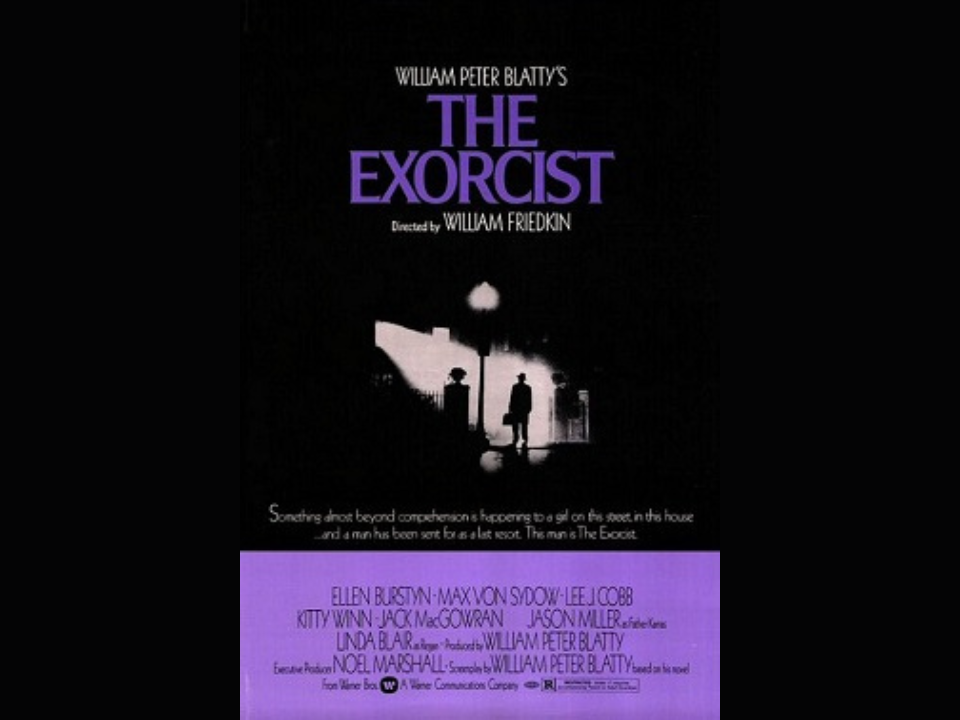
This classic film is often regarded as one of the scariest religious horror movies of all time. Based on a true story, it centers around a young girl who becomes possessed by a demon, leading her mother and a pair of priests to attempt an exorcism. The movie masterfully blends psychological terror with supernatural elements, keeping viewers on the edge of their seats.
The imagery and themes of possession and faith are so impactful that they remain iconic in the genre. The film’s unsettling atmosphere and disturbing visuals have left an indelible mark on pop culture, ensuring it remains a go-to for horror enthusiasts. It is an unsettling exploration of the battle between good and evil.
Rosemary’s Baby (1968)
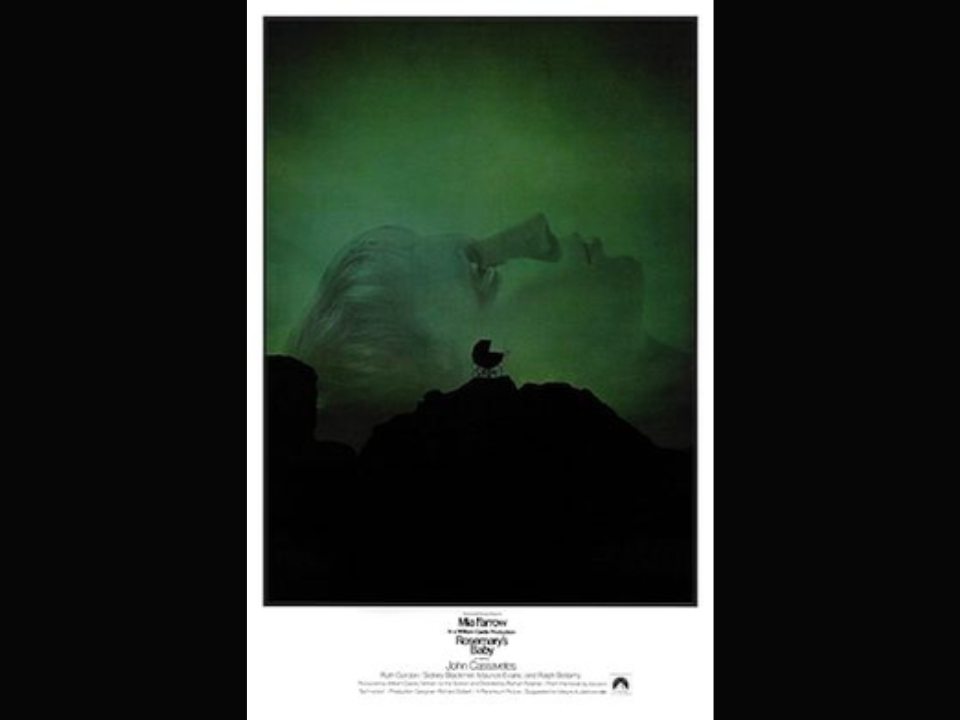
In this film, a young woman named Rosemary, played by Mia Farrow, becomes pregnant and suspects that her neighbors may be involved in a sinister cult. As the story unfolds, she learns of a conspiracy involving dark forces that want to use her unborn child for nefarious purposes. The religious themes of Satanism and sacrifice add layers of fear, as Rosemary’s journey forces her to question her faith and reality.
The psychological tension in “Rosemary’s Baby” is built through paranoia, isolation, and subtle horror, keeping viewers in suspense. It is a deeply unsettling look at the intersection of power, trust, and fear, as well as the vulnerability of motherhood. The film stands as a chilling reminder of how sinister religious ideologies can manifest in unexpected ways.
The Omen
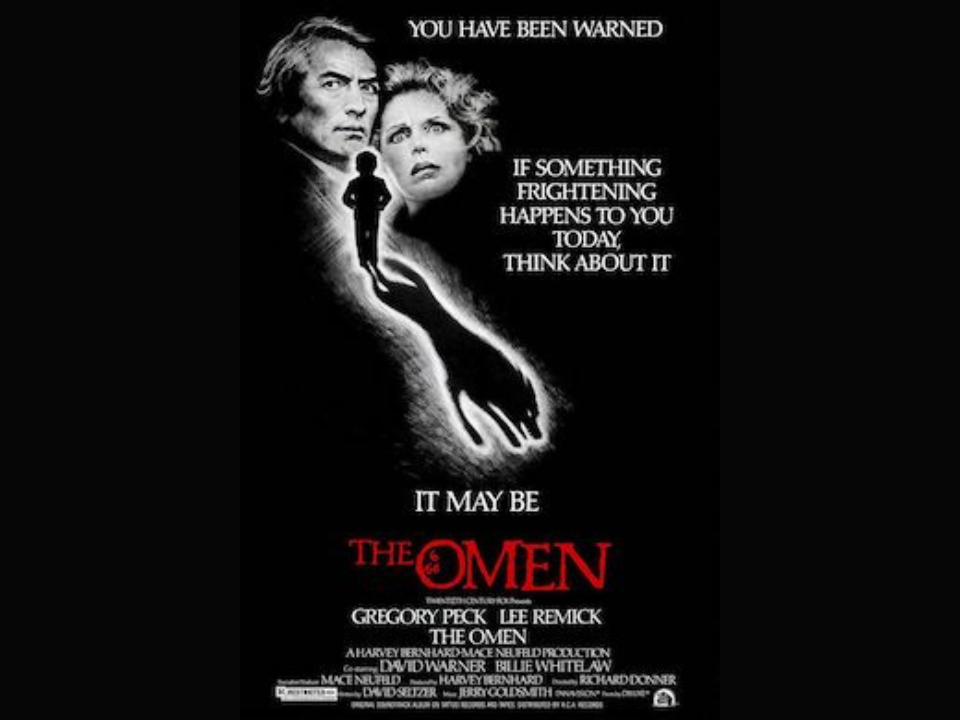
This film follows a young child named Damien, who is revealed to be the Antichrist. As a series of terrifying and unexplained events unfold, it becomes clear that Damien is destined for dark, religious significance. His rise to power is marked by a series of tragic deaths, all connected to the prophecy that foretells the coming of Satan’s child.
“The Omen” is a relentless exploration of the battle between good and evil, as a family is forced to confront the realization that their son is a force of pure evil. The suspenseful direction, haunting soundtrack, and chilling imagery make it a film that lingers long after it ends. Its religious undercurrent of biblical prophecy and demonic forces heightens the tension throughout.
The Nun (2018)
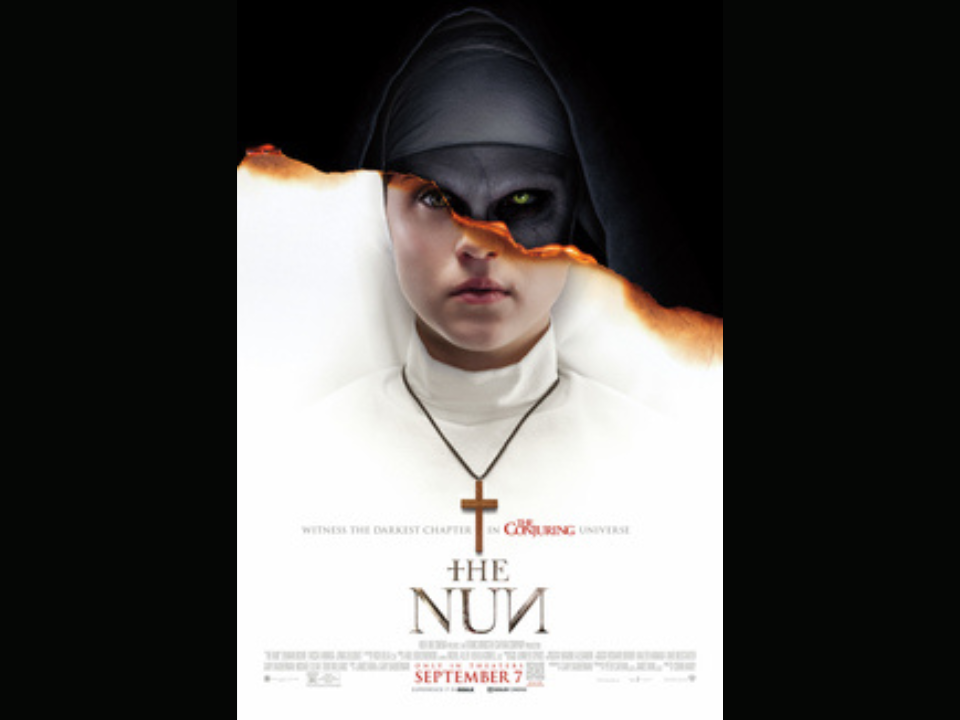
Set within the “Conjuring” universe, “The Nun” delves into the origin story of the demonic entity known as Valak. The film follows a nun and a priest as they investigate the mysterious death of a nun at a convent in Romania. As they uncover more about the abbey’s dark history, they are confronted with a terrifying presence tied to religious and supernatural horrors.
The film creates a tense atmosphere by using the monastery’s isolation and the eerie presence of the demonic nun to build fear. Its exploration of faith, guilt, and the darkness that lurks in places of worship adds depth to the horror. The haunting visuals of the nun are guaranteed to leave a lasting impact.
The Witch (2015)
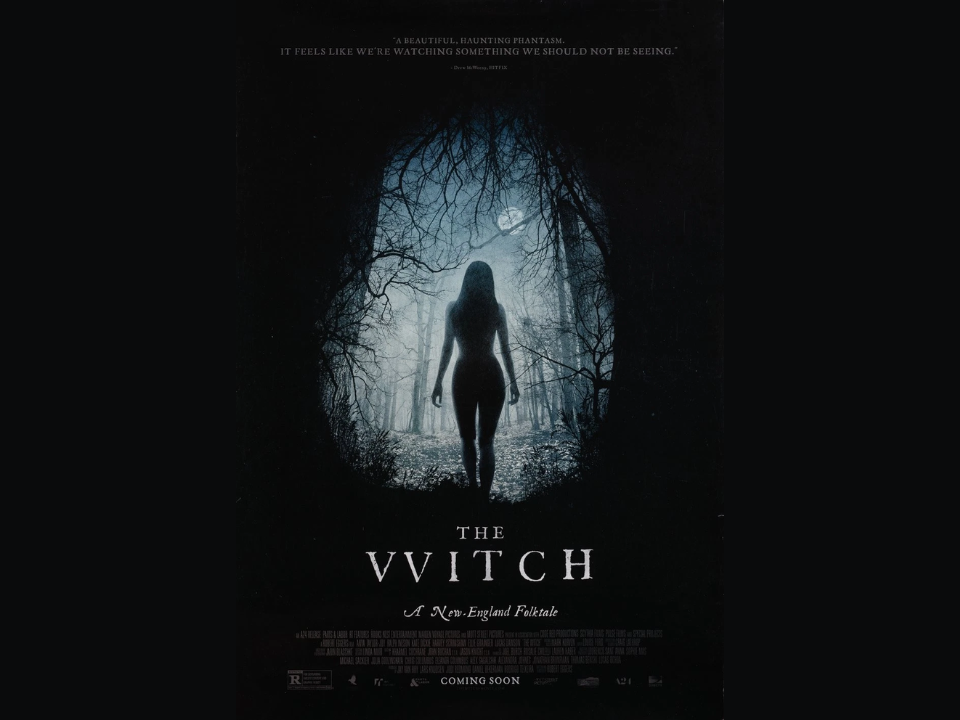
In 17th-century New England, a devout Puritan family is torn apart by their growing fear of witchcraft and the supernatural. The film follows Thomasin, a young girl who becomes the center of suspicion and terror as the family’s trust in their faith is shaken. Religious themes of sin, guilt, and damnation are woven throughout the story, giving it an unsettling edge.
“The Witch” stands out for its slow-burn tension and psychological horror, with its focus on how religious extremism and superstition can lead to the unraveling of a family. The haunting presence of the witch, symbolizing both temptation and punishment, makes the film deeply unnerving. Its religious horror element forces viewers to question the fine line between faith and fear.
Deliver Us From Evil (2014)
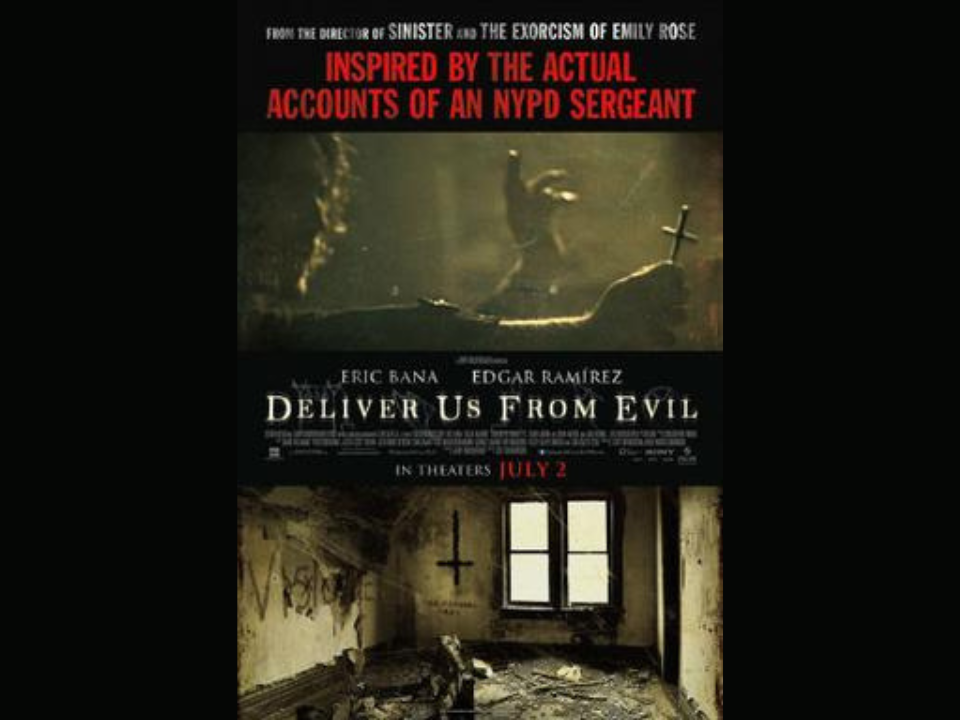
“Deliver Us From Evil” follows a New York cop who is called in to investigate a series of bizarre crimes, only to find that they are linked to a demonic presence. The film incorporates themes of possession and exorcism, as the cop and a priest work together to stop the evil force from spreading further. The story is loosely based on real-life events, which makes the supernatural horror even more terrifying.
The film builds its religious horror through intense suspense and the emotional struggle of the characters as they confront a force much larger than themselves. The themes of good versus evil, salvation, and divine intervention are central to the narrative, offering a gripping exploration of faith under pressure. The atmosphere is oppressive, and the unsettling nature of the horror leaves viewers on edge.
The Rite (2011)
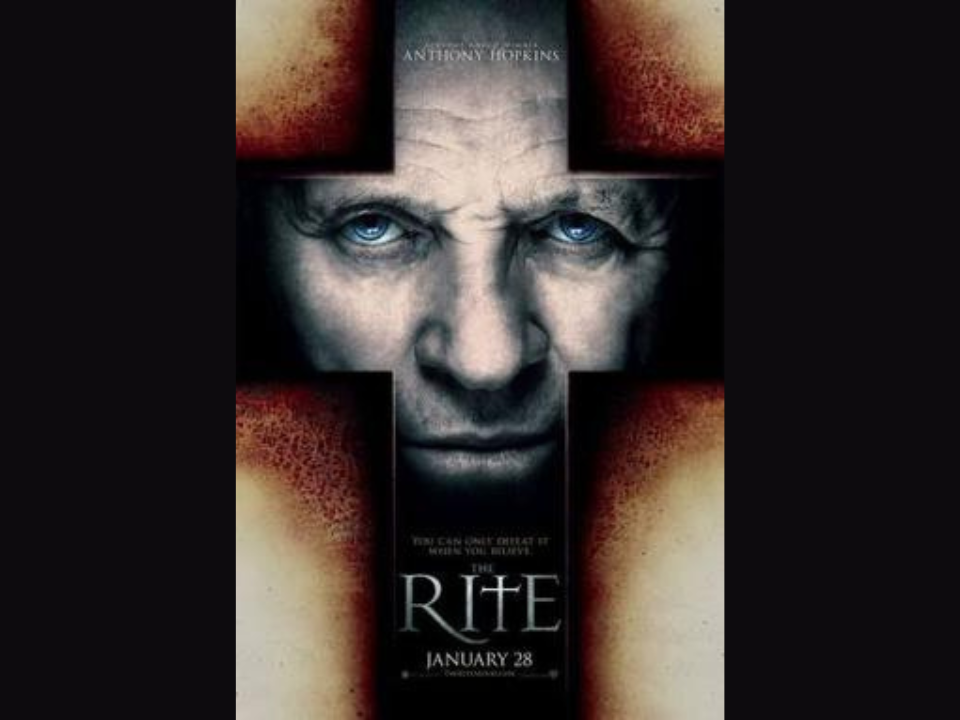
Inspired by true events, “The Rite” follows a skeptical seminary student who is sent to study exorcism in Rome. There, he encounters a seasoned exorcist and witnesses the horrifying realities of demonic possession. The clash between faith and doubt forms the core of the film, as the protagonist wrestles with the concept of evil and the power of the divine.
This film draws heavily from religious themes, particularly focusing on the battle between faith and the supernatural. It explores how the mind can be manipulated by dark forces, especially when one’s belief system is tested to its limits. The intense exorcism scenes and the spiritual conflict provide the perfect recipe for a chilling religious horror experience.
The Last Exorcism (2010)
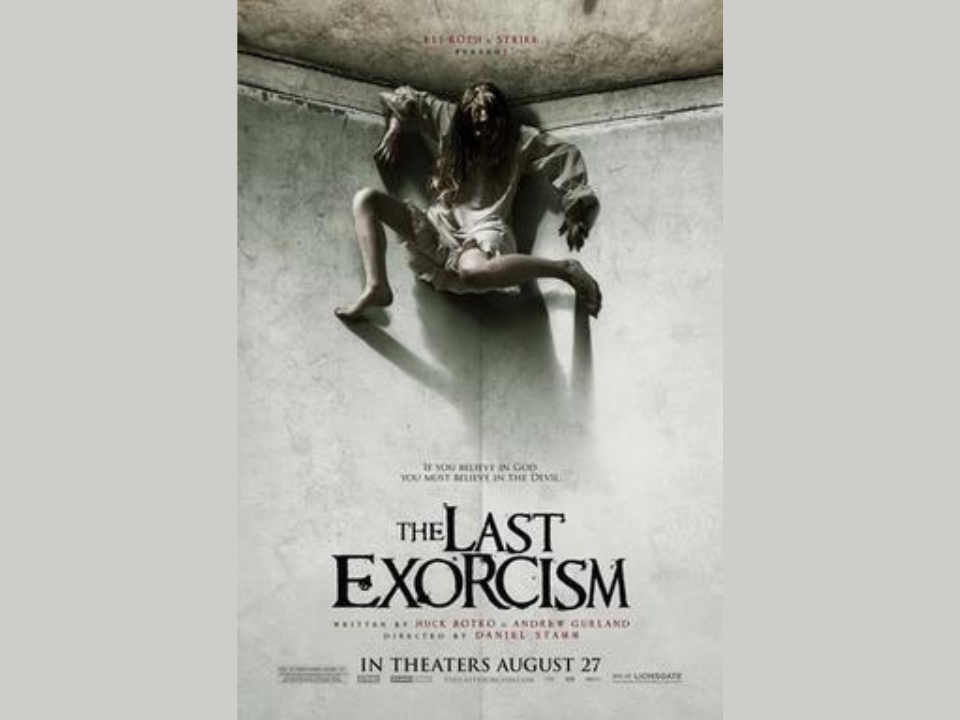
In this found-footage style horror film, a preacher who performs exorcisms is called to help a young girl who appears to be possessed. As he records the exorcism to expose the fraudulent nature of his work, he soon realizes that the girl’s possession may be real, and far more dangerous than he anticipated. The film explores themes of faith, deception, and the unknown forces that lurk behind human suffering.
“The Last Exorcism” is a haunting exploration of religious rituals and their potential for both good and evil. The way the film questions the nature of possession and the power of belief gives it a unique perspective on religious horror. Its slow build-up to a terrifying climax ensures it keeps audiences in suspense.
The Conjuring (2013)
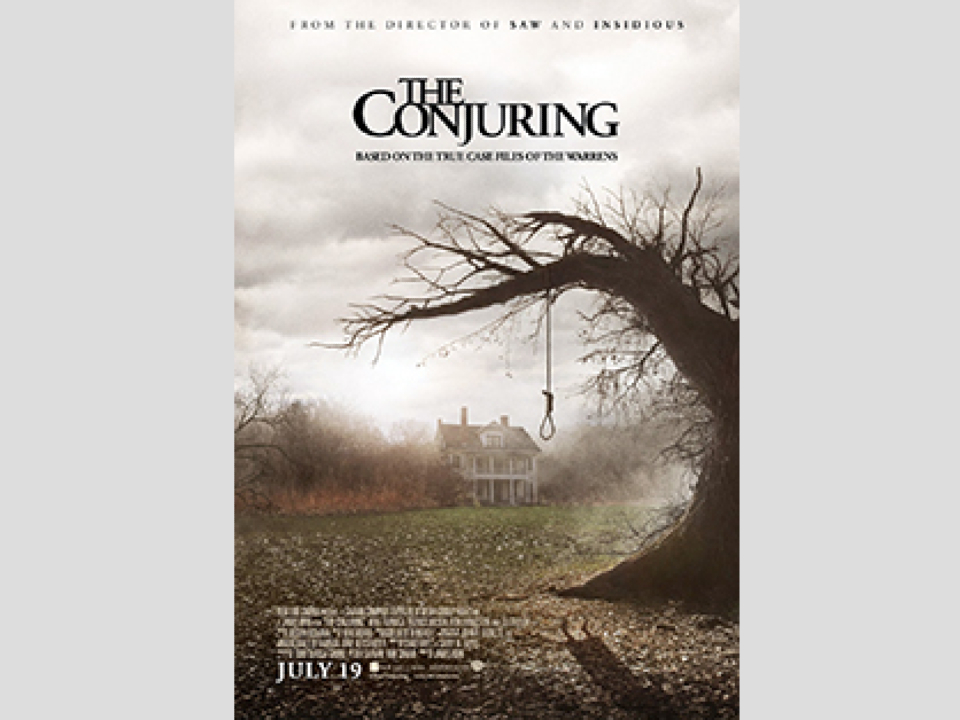
This supernatural horror film tells the true story of paranormal investigators Ed and Lorraine Warren as they investigate the haunting of a family in Rhode Island. The terrifying events are rooted in demonic forces, and the Warrens use their knowledge of religious rituals to battle the evil that has taken hold of the house. The film’s focus on possession, exorcism, and the power of prayer makes it a powerful religious horror experience.
The religious themes are explored through the characters’ belief in the power of God and the church’s ability to counteract dark forces. The tension builds steadily as the family becomes more ensnared by the evil in their home. The chilling atmosphere and supernatural elements make “The Conjuring” a standout in the religious horror genre.
The Exorcism of Emily Rose (2005)
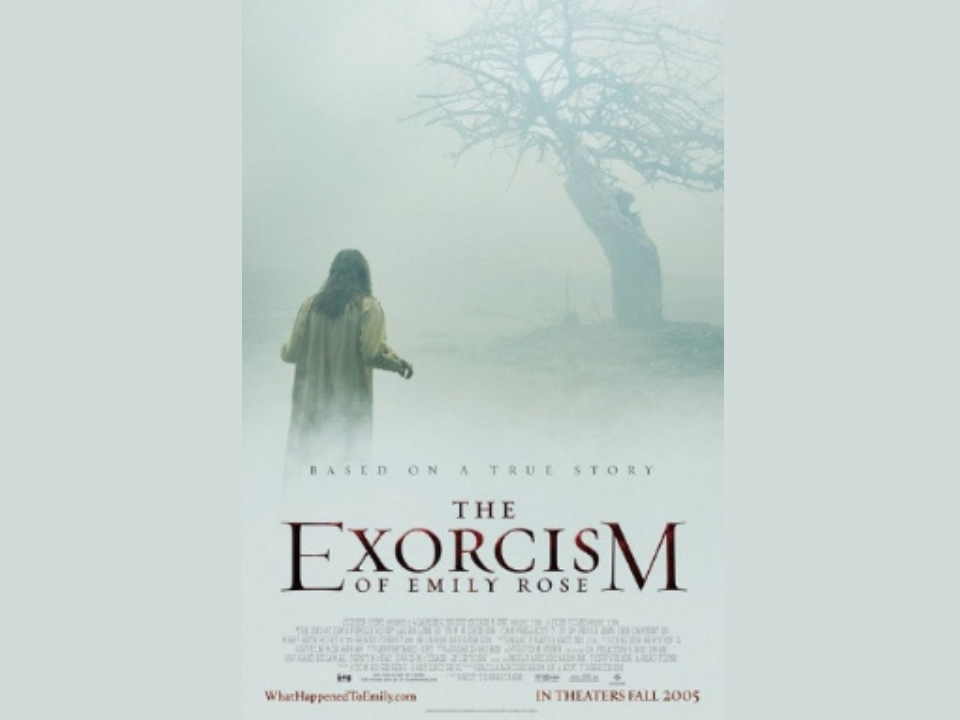
This film blends courtroom drama with supernatural horror as it tells the story of a priest on trial for the death of a young woman who underwent an exorcism. The movie alternates between the trial and flashbacks of the exorcism, providing a chilling examination of faith, possession, and the limits of medical and religious intervention. The central conflict between science and religion creates a deep, unnerving tension throughout the film.
“The Exorcism of Emily Rose” explores the consequences of blind faith and the terrifying reality of demonic possession. The performances, especially by Jennifer Carpenter, who plays Emily, are compelling, adding to the emotional weight of the story. The film questions the nature of evil, religious responsibility, and the role of the church in dealing with supernatural occurrences.
The Possession (2012)
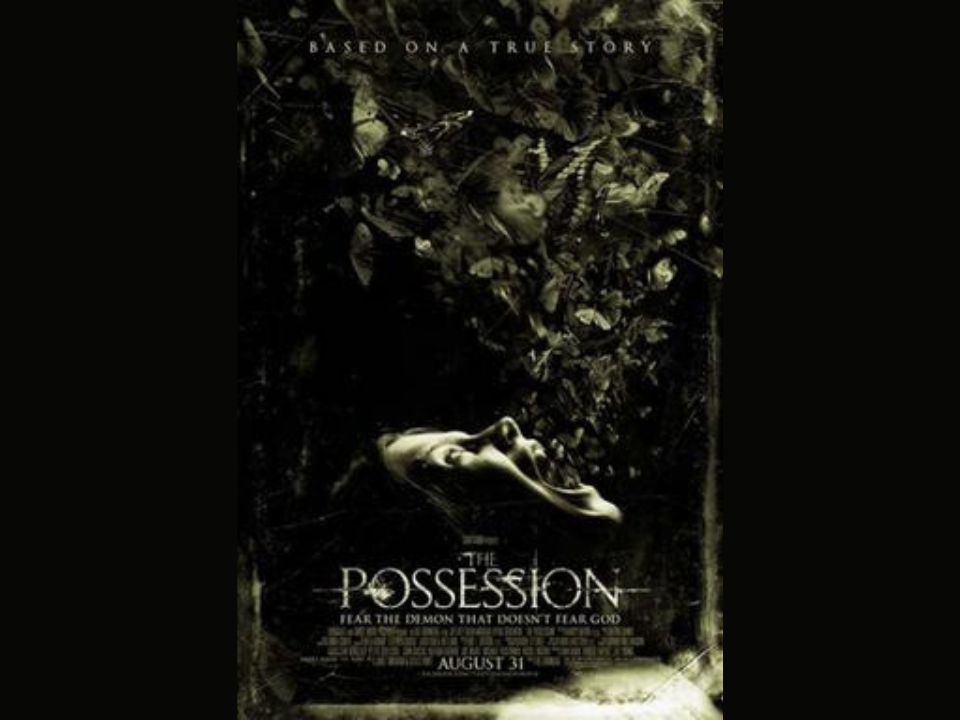
In this film, a young girl becomes possessed by a spirit after coming into contact with an ancient box at a yard sale. As her behavior grows increasingly erratic and violent, her father must battle the supernatural forces in an attempt to save her. The movie is rooted in the belief that some spirits are trapped between worlds and can use objects as vessels for their evil.
“The Possession” emphasizes the dangers of dabbling with objects tied to ancient rituals and spiritual entities. The film’s religious undertones focus on the struggle between good and evil, as well as the importance of faith in the face of darkness. The eerie scenes of possession and the desperate attempts to free the girl are enough to leave anyone questioning the unknown.
The Devil’s Advocate (1997)
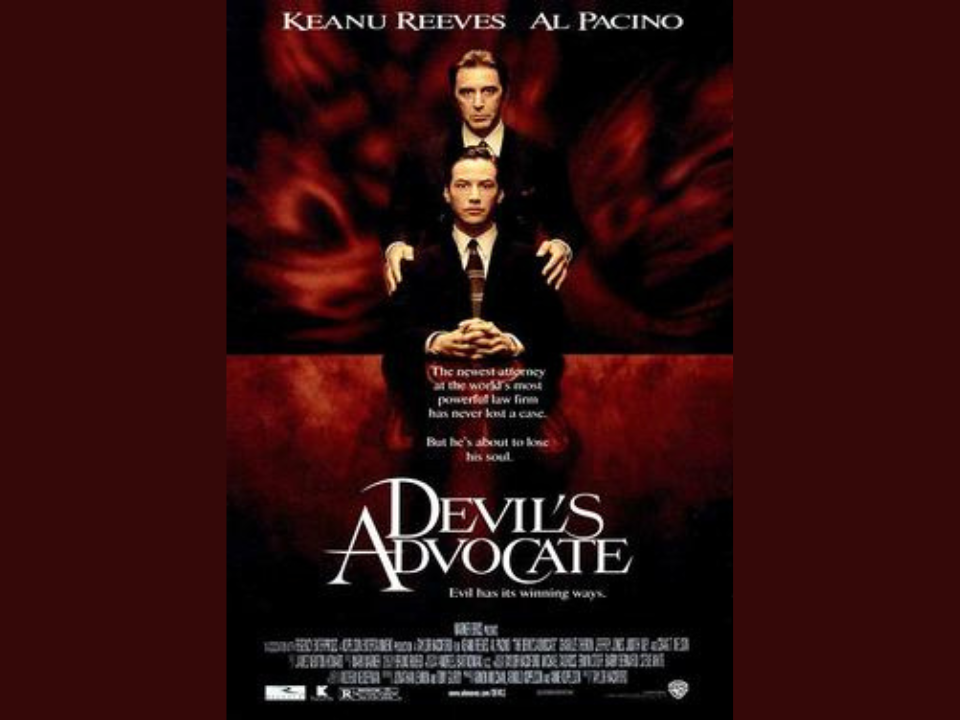
While not a traditional exorcism film, “The Devil’s Advocate” combines religious themes with psychological horror in a gripping way. It stars Keanu Reeves as a lawyer who is seduced by the power and wealth of his mysterious boss, played by Al Pacino, only to realize that his boss is none other than Satan. As the lawyer becomes entangled in his boss’s sinister schemes, he grapples with the moral and spiritual consequences of his choices.
The movie explores the seductive nature of evil and the struggle to retain one’s soul in the face of temptation. Its religious undertones deal with free will, the consequences of sin, and the eternal battle between good and evil. The chilling climax and unsettling atmosphere make this a thought-provoking and terrifying film.
Saint Maud (2019)
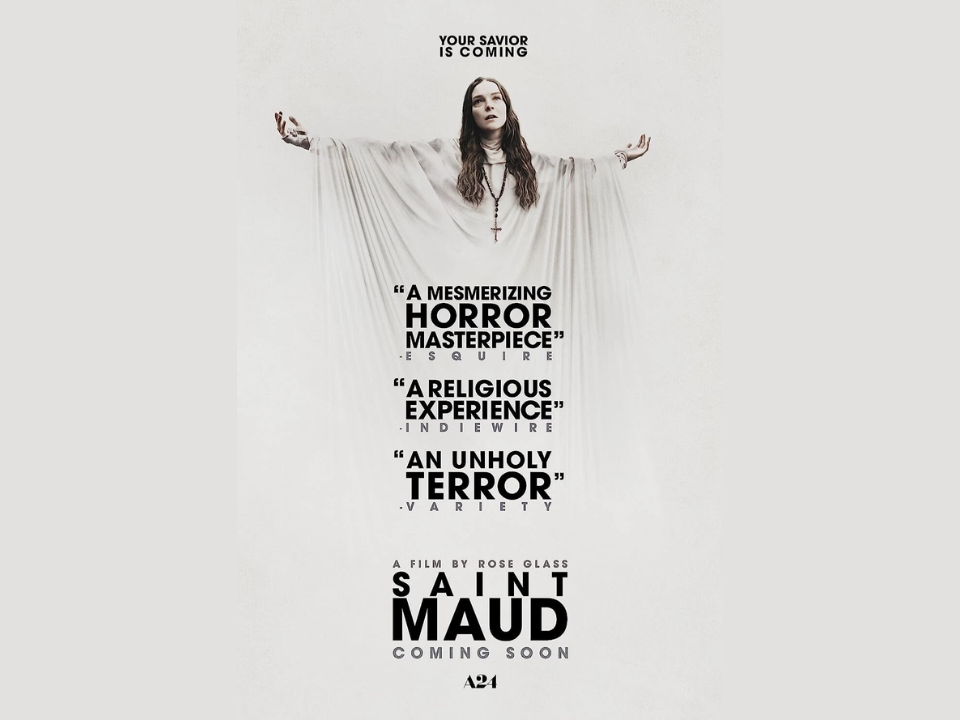
“Saint Maud” tells the story of a devout nurse who becomes obsessed with saving the soul of her patient, an aging dancer who is terminally ill. The film explores the destructive consequences of blind faith, as the protagonist believes that she has been chosen by God to save the woman’s soul. Her delusions lead to terrifying actions that blur the line between religious devotion and madness.
The film is a psychological horror piece that delves into themes of guilt, redemption, and the perils of religious extremism. It uses slow, atmospheric tension to evoke a sense of dread, keeping the audience on edge as the protagonist’s descent into madness becomes more apparent. “Saint Maud” is a chilling look at the dark side of faith and the cost of spiritual obsession.
A Dark Song (2016)
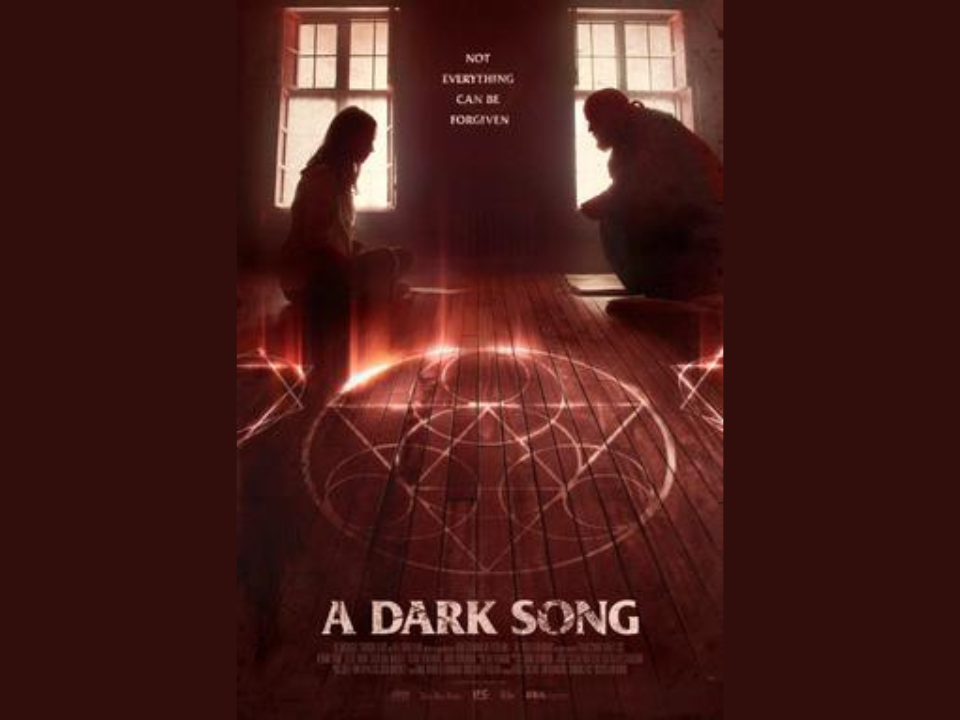
In “A Dark Song,” a grieving woman hires an occultist to help her contact the spirit of her deceased son through a dangerous and ancient ritual. As the ritual progresses, they both face physical and psychological trials that push them to their limits. The film combines elements of religious horror with occult practices, exploring the price of seeking forbidden knowledge and the dangers of dabbling with dark forces.
The themes of sacrifice, guilt, and the supernatural are deeply intertwined, as both characters are forced to confront their inner demons. The slow-burn tension and psychological terror make “A Dark Song” a haunting exploration of the human desire to control life and death. Its religious horror elements are grounded in the belief that some knowledge should never be sought.
The Sacrament (2013)
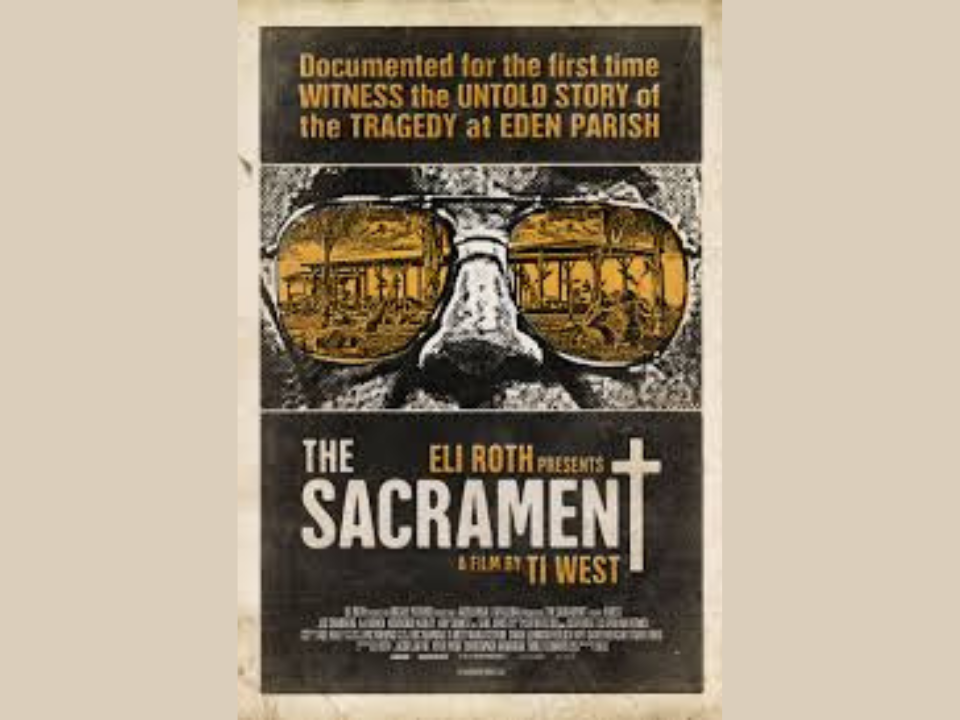
In “The Sacrament,” two journalists travel to a remote commune to investigate the mysterious practices of its leader, who has created a religious cult-like following. What they uncover is a dark secret tied to the leader’s twisted interpretation of faith, leading to shocking and terrifying events. The film draws inspiration from real-life cults and religious extremism, exploring the consequences of blind devotion and manipulation.
The film’s strength lies in its exploration of the dangers of charismatic leaders who prey on vulnerable individuals seeking meaning in life. The disturbing imagery and religious themes of control, sacrifice, and salvation make “The Sacrament” a chilling exploration of the darkness that can arise from faith. The movie’s documentary-style filmmaking intensifies the horror, making it feel all the more real.
This article originally appeared on Avocadu.
